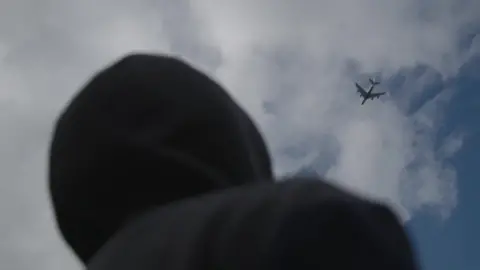'County-lines gangs fuelling' child slavery rise
 BBC
BBCThere has been an eightfold increase in the number of child victims of modern slavery referred by local councils in England for support.
National Crime Agency figures reveal the number of children earmarked for help grew from 127 in 2014 to 1,152 last year - an increase of 807%.
Town hall bosses say the increase has been fuelled by the growing of issue "county-lines" drug gangs.
Councils receive no specific funding for supporting such victims.
Under the Modern Slavery Act 2015, it is an offence to hold a person in a position of forced labour or facilitate their travel with the intention of exploiting them soon after.
The act introduced tougher sentences, and more help for people forced into labouring, domestic servitude, sex work or selling drugs.
'Huge pressure'
County-lines drug gangs move young people around the country with the intention of forcing them to aid with the distribution of drugs for criminal gain.
The Local Government Association is warning the rapid increase in child referrals for modern slavery is adding to the already huge pressure on the services they provide for vulnerable children.
In one year alone, from 2017 to 2018, the number of child referrals grew 67%, and 92% of all referrals from councils related to children.
At the same time, increases in adult victims are putting pressure on the already stretched adult social care system, the LGA says.
'Despicable crime'
It is calling for the chancellor to use next year's spending review to ensure long-term, sustainable funding to support modern slavery's victims.
Simon Blackburn, who chairs the LGA's Safer and Stronger Communities Board, said: "The despicable crime of modern slavery is a rising threat to our communities and can destroy the lives of vulnerable people working in fear of physical violence from ruthless gangmasters.
"The spiralling rate of council referrals, especially relating to children who face specific risks through county-lines drug trafficking or child sexual exploitation, is having a huge impact on overstretched council services, particularly children's services.
"Extra funding next year will help but government needs to ensure councils have adequate long-term resources to tackle this abuse and support its victims, as well as creating a sustainable NRM [national referral mechanism] system in the long term."
Anyone who believes someone is in immediate danger due to modern slavery or exploitation should call police on 999, or 101 if there is no immediate danger. Alternatively, call the Modern Slavery Helpline on 08000 121 700.